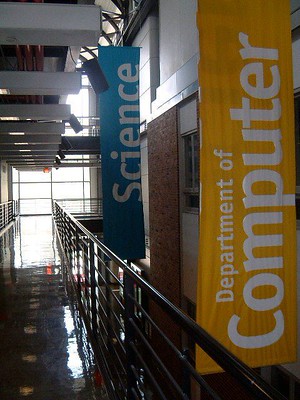Researchers from New York University recently published a study of the post-secondary majors that provide the greatest increase in income following graduation. The research, which appeared in the March issue of the American Educational Research Journal, drew from information collected by the US Census Bureau in the American Communities Survey.
The researchers compared wages earned by college graduates in 10 general academic areas to wages earned by people who had only a high school diploma. Using the data, the authors estimated what they called the “internal rate of return” (IRR) for different college majors over time. The researchers envisioned that high school students might use their research to determine their choice of college major. Additionally, legislators could use the research to develop public policy regarding student financial aid and other subsidies.
Actually, I envisioned a very different use for the data: helping community colleges that are interested in their own long-term survival determine which majors will elevate earnings enough to attract more students into their classrooms.
Not surprisingly, the majors that produced the highest IRRs relate to computer science, engineering, and business. Students who major in these study areas tend to earn 30%-40% more than students who major in humanities, arts, education, or history. I am not saying that there is no value in majors in these areas, but if the goal is to attract more students via high-wage programs, it makes the most sense to build new programs in these areas and develop strategies to direct enrollment into them.
An added benefit of majoring in programs that have a high wage potential is that people who occupy these jobs tend to fare better during recessions and other economically turbulent periods. What’s not to like about training someone for a job that can survive a recession?
Rising income associated with jobs that require critical thinking skills
The researchers also found that advanced cognitive skills including computation and analysis and non-routine work that requires creativity, critical thinking, flexibility and/or human interaction had greater long-term income potential. In fact, workers who regularly performed more abstract work enjoyed a wage premium of 20%, while workers who performed routine or repetitive tasks suffered a wage penalty of 10%-19%.
If a community college were looking to retune its academic programs to use income potential to attract more students, placing greater emphasis on programs that relate to computers science, engineering, business, science and math would be a good start. On the other hand, if a community college were satisfied with losing enrollment and funding, it should just keep doing what it’s done for the last decade.
Photo Credit: Naperville Millers , via Flickr

















